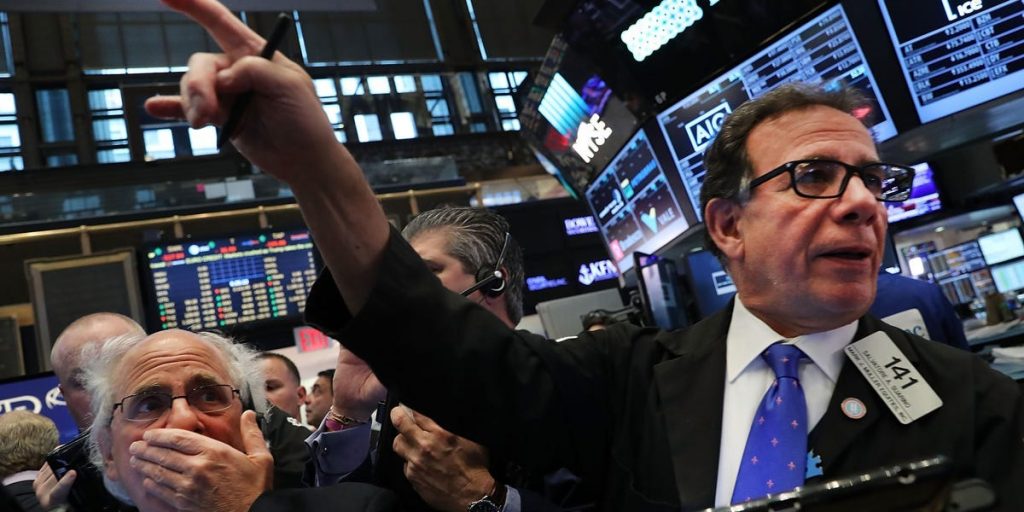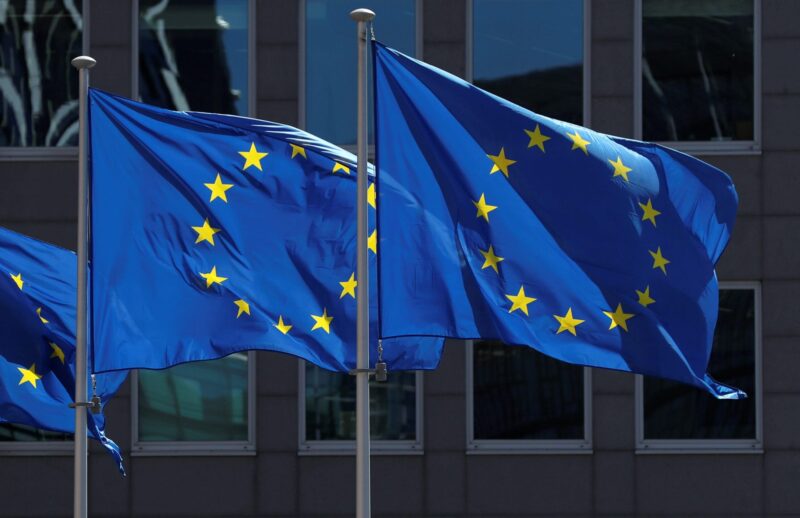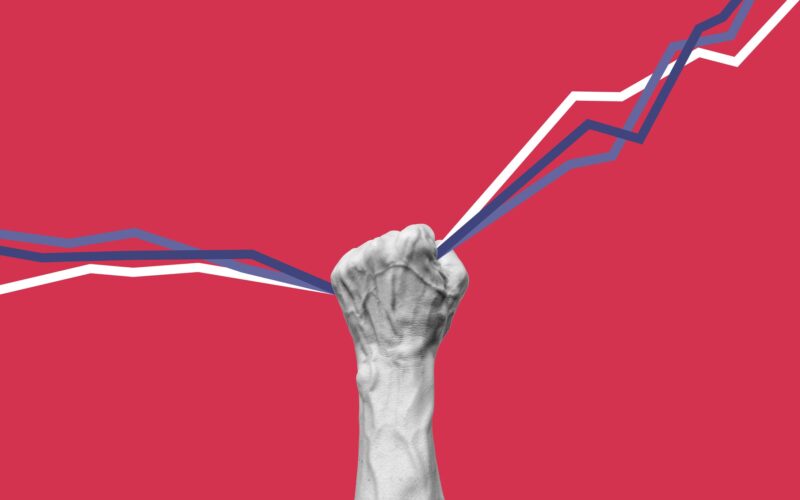- Global stocks were mostly up Thursday on hopes inflation may be close to peaking.
- The ECB's meeting is in focus, and policymakers are expected to open the door to a summer rate hike.
- Oil prices fell after US crude inventories rose more than expected by 9 million barrels last week.
Global stocks inched higher on Thursday, driven by signs inflation may be close to peaking, and much of the central bank tightening appears to be priced into the bond market.
Equity markets have been bearing the brunt of central bank hawkishness, but futures on all three major US indices were in the green. Futures on the Dow Jones, S&P 500, and Nasdaq rose about 0.2% each as of 4:10 a.m. ET, suggesting a modestly higher open later in the day.
The MSCI World Index, which tracks markets in several emerging and developed countries, rose 0.2%.
"The perpetually bullish FOMO gnomes of the stock market stayed laser-focused on peak-US inflation," said Jeffrey Halley, a senior market analyst at OANDA. "Everyone remains desperate to pick the absolute bottom of the stock market."
US consumer prices rose at the fastest pace in over four decades in March, at 8.5% year-on-year. But there are indications that inflation is moderating, with price rises in certain goods declining, and investors appear to be encouraged by that.
"This should allow central banks to slow the pace of monetary tightening and tone down hawkish rhetoric," Mark Haefele, chief investment officer at UBS Global Wealth Management, said. "That in turn should lower the threat of an economic hard landing."
US yields too dropped on the peak inflation theme. The yield on the 10-year Treasury note was at 2.66%, down from 2.83% before the inflation data.
JPMorgan set off the earnings season with a grim start, reporting a revenue slowdown in its first-quarter Wednesday. But analysts said Wall Street chose to ignore the major US bank's earnings to focus on peaking inflation.
Elsewhere, investor focus will be on the European Central Bank's monetary policy decision on whether to change the pace of tightening, which will be announced at 12:45 p.m. London time.
The central bank is expected to stick to the script and not move rates from 0.25%, but analysts say the governing council is likely to adopt a more hawkish tone and set the scene for policy tightening in the summer.
It may announce that net purchases will now be wound down to zero much sooner, possibly by June, said Matthew Ryan, senior market analyst at Ebury.
Thursday's ECB meet will keep any bullishness in check, according to IG's chief market analyst Chris Beauchamp, as the eurozone faces similar inflationary challenges as the UK and US.
London's FTSE 100 fell 0.3%. The pan-European Euro Stoxx 600 rose 0.1% and Frankfurt's DAX rose 0.2%.
Asian equities tracked Wall Street higher after China announced late Wednesday that authorities would cut the amount of money central banks need to keep as a reserve — a sign of support for the economy hurt by lockdowns.
The Shanghai Composite and Tokyo's Nikkei rose 1.2% each. Hong Kong's Hang Seng gained 0.5%.
Oil prices eased for the first time in three days, after data showed US crude inventories rose more than expected by 9 million barrels in the week to April 8, which traders see as a sign of weaker demand.
The International Energy Agency downwardly revised its forecast for global oil consumption this year, and warned Russian oil output will decrease due to sanctions from April onwards.
Brent crude futures fell 0.8% to $107.85 a barrel and West Texas Intermediate fell 1.06% to $103.14 a barrel.
Even so, both benchmarks have risen by about 7% this week, driven by worries about a supply crunch.
Major European and US markets, as well as some Asian markets, will close on Friday for the Easter weekend.










